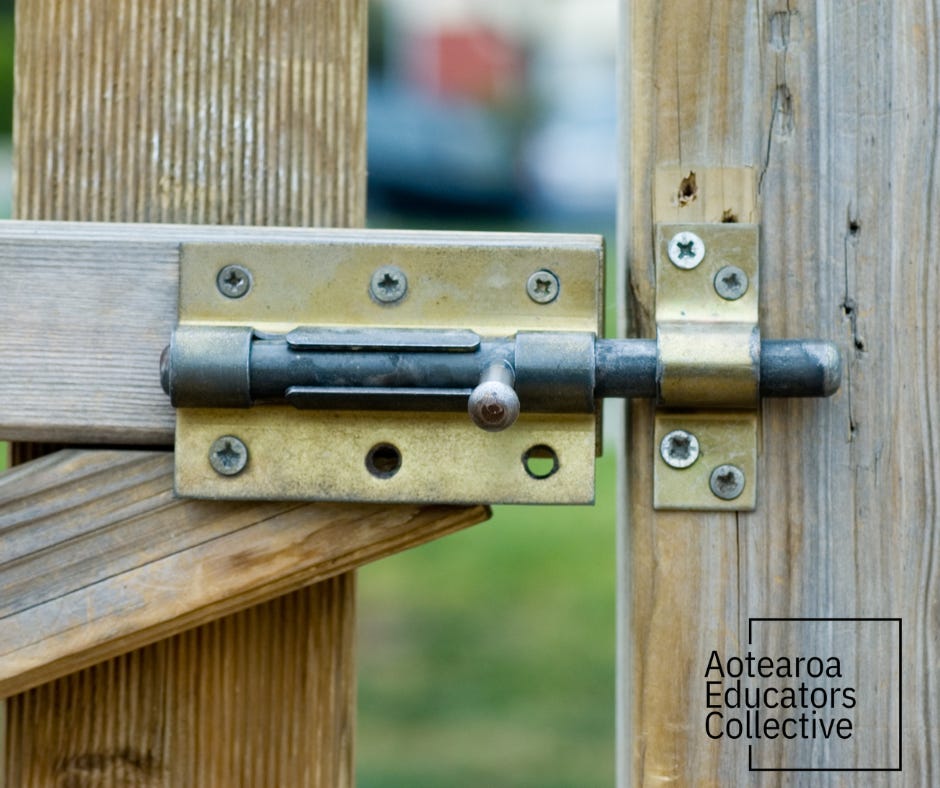When the New Zealand Association of Teachers of English (NZATE) submitted an Official Information Act (OIA) request, they were seeking clarity on a simple but crucial question:
Is the curriculum refresh being shaped through broad, professional consultation — or by a select few voices?
The response was revealing. And troubling.
Access — But for Who?
The OIA documents show extensive, direct, and informal communication between the Minister of Education and leaders of science subject associations. Emails, texts, and Zoom meetings captured detailed feedback, alternative curriculum models, and frank process critiques.
Other subject associations — including English — were noticeably absent from this level of engagement.
This is not about criticising science colleagues. It’s about asking a bigger question: Why aren’t all educators — those with deep knowledge of their disciplines and learners — equally included in shaping what every child in Aotearoa will learn?
You can read the OIA responses in full here:
Curriculum is Too Important for Closed Doors
Curriculum is not just content on a page. It is the lived experience of every student in every classroom, every day.
Teachers carry the knowledge that matters most here.
They understand:
How children learn — from new entrants to NCEA
What motivates young people, what disengages them, and what sustains their curiosity
The diverse identities, cultures, and lived experiences ākonga bring to learning
How knowledge builds over time — and what happens when curriculum design fails to connect
This is not theoretical. It is professional knowledge — gained through practice, reflection, and working with real students in real contexts.
A Worrying Pattern of Influence
The OIA findings confirm what many in education already feared: some voices are being heard more loudly than others.
Alongside these private discussions, we’ve seen growing public narratives pushing for:
A narrow focus on "knowledge-rich" curriculum models
"Back to basics" reforms driven by political rhetoric rather than educational research
Increasing influence from policy think tanks and external commentators
Meanwhile, the teaching profession — those who understand both knowledge and how it is best taught and learned — are too often positioned as the problem, rather than the solution.
Teachers Are the Experts in Learning
As educator Claire Amos reminds us, "We are living in an education fairy tale where the heroes are politicians and the villains are teachers, unions, and academics."
But the reality is simple: teachers are the profession with the deepest understanding of how young people learn.
They know that curriculum design is not just about what we teach, but how we teach it — and whether it speaks to the diverse learners sitting in front of us.
No curriculum — no matter how well intentioned — succeeds without understanding that complexity.
What Needs to Change
The question facing us now is not whether teachers have the expertise — they do.
The question is whether the system will listen.
We call for:
A transparent, published process for curriculum consultation
Equal and meaningful access for all subject associations and sectors
Recognition that teachers are the curriculum’s most essential knowledge holders — not just implementers, but designers
A curriculum process that honours Te Tiriti o Waitangi, and reflects Aotearoa’s unique and diverse knowledge systems
The Future of Education Depends on It
Our learners deserve a curriculum built with — not just for — the profession.
One that reflects the knowledge of those who understand how children learn, what motivates them, and what keeps them connected to learning for life.
Teachers have that knowledge. It’s time to recognise it, respect it, and place it where it belongs: at the heart of curriculum design.
Explore the OIA Documents Yourself
🔗 Read the OIA responses released to NZATE here
If we want a curriculum that truly serves every learner in Aotearoa, we must start by listening to the profession. Teacher knowledge is not optional — it is essential.






The irony is that one of Nz’s most vocal conservatives, and successful business person - Bob Jones - has always maintained he’d hire top arts graduates (classics, English, history..) over finance, business, tech etc. McKinsey has a similar recruitment strategy - top post-grad arts students. Why? Because they can think and express well reasoned ideas….they review all sources, assimilate, evaluate & decide…what every person business person does every minute of every day. Everything this Cabinet doesn’t do. Reminds me of a saying one of Australia’s top advertising creative once quipped to me “remember, an ordinary man is always at his best”.
I'm very concerned about who is having the most influence on the curriculum development and now the proposed testing regime.
Unfortunately I could not view the OIA documents. Any tips on how I can?